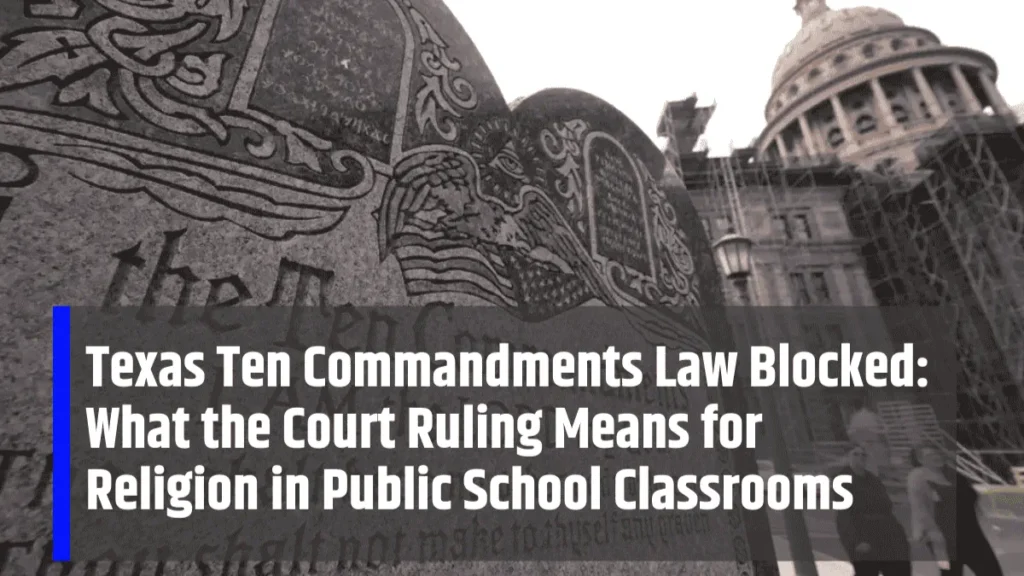A controversial law in Texas Ten Commandments Law Blocked to be displayed in every public school classroom has been blocked by a federal court. The decision has sparked nationwide attention, raising questions about the separation of church and state, student rights, and the future of religious expression in public education.
What the Law Proposed
The Texas law, passed earlier this year, mandated that all public schools post the Ten Commandments in a visible place inside every classroom. Supporters argued it would restore traditional values and provide moral guidance to students. Critics, however, said it violated the U.S. Constitution by promoting a specific religious viewpoint in taxpayer-funded schools.
The Court’s Ruling
A federal judge ruled that the law cannot take effect because it likely violates the Establishment Clause of the First Amendment, which prohibits government endorsement of religion. The court emphasized that public schools must remain neutral on matters of faith, ensuring that no student feels pressured or excluded based on religious beliefs.
Impact on Students and Schools
For Texas schools, the ruling means classrooms will remain free from mandated religious displays. Students from different faiths—or those with no religious affiliation—will not be subjected to state-imposed religious messaging. The decision also reassures educators who worried about being caught in the middle of legal conflicts over enforcing the law.
Broader National Significance
The blocked law highlights ongoing debates across the country about religion in public life. Similar proposals have emerged in other states, and legal challenges are likely to continue. The ruling serves as a reminder that while individuals have the right to practice religion freely, government institutions like schools cannot favor one belief system over another.
Conclusion: The federal court’s decision to block Texas’ Ten Commandments law reinforces the principle of religious neutrality in public schools. While faith remains an important part of many students’ lives, the ruling ensures that classrooms remain inclusive spaces where no single religious tradition is promoted by the state.
Disclaimer: This article is for informational purposes only and does not provide legal advice. For specific legal guidance, consult with a qualified constitutional law expert.
Read More:
- Montana Students with Disabilities Can Stay in School Until 22: Federal Court’s Key Ruling Explained
- VA Shrinks Workforce by 30,000: How It Could Impact Veterans and Services in 2025
- Trump Research Grant Freeze Hits Harvard & UCLA: What It Means for U.S. Science
- Declining International Student Enrollment Could Cost the U.S. $7 Billion in 2025
- US Driving License Rule Changes September 2025: What Seniors Aged 70+ Need to Know






